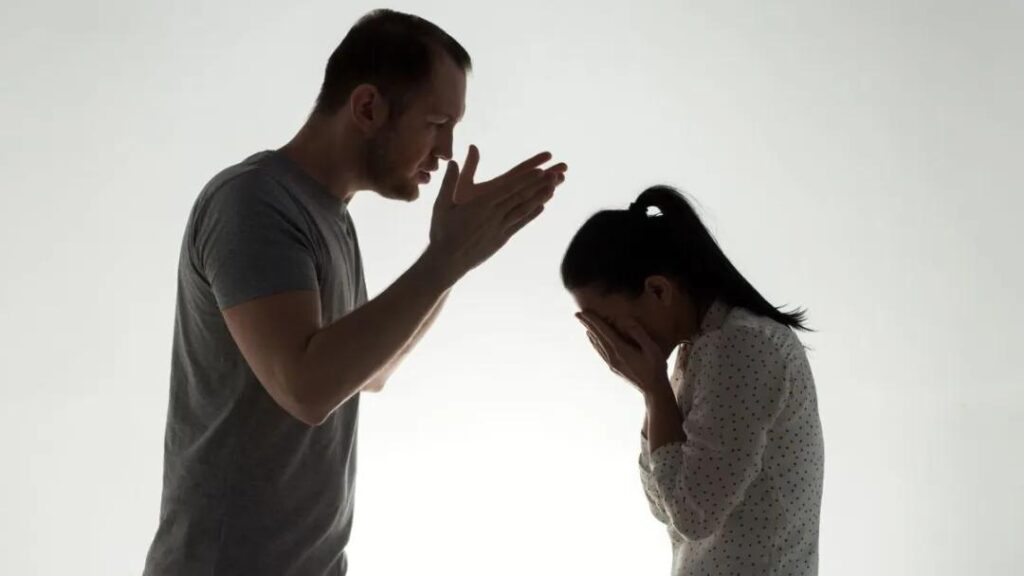Gaslighting in relationships is a form of emotional manipulation and abuse. The abuser seeks to control their partner by making them question their own memory, perception, and sanity. This behavior is often subtle, making it difficult to detect until you know what to look for. Recognizing these signs is crucial to identifying and addressing gaslighting. Below are 11 key signs of gaslighting that you should pay attention to.
What is Gaslighting?
Gaslighting is a form of emotional abuse. According to licensed marriage and family therapist Stacey Hubbard, it’s a strategy used by abusers to manipulate their partners into doubting their own sanity. Dr. Mike McNulty, founder of the Chicago Relationship Center, adds that it’s a highly manipulative tactic in which the abuser makes their partner feel and appear crazy for personal gain.
It’s important to differentiate between actual gaslighting and occasional negative behaviors or reactions from a partner. Dr. Wag Deva Munier, a master trainer at the Gottman Institute, notes that there are two types of situations: one where gaslighting is part of a larger pattern of control and “intimate terrorism,” and another where a partner may occasionally dismiss or deny our feelings. She cautions that a few instances of belittling our feelings or views do not necessarily constitute gaslighting.

If it’s true gaslighting, then the behavior is a clear example of emotional and psychological abuse. Dr. Munier explains that gaslighting is when a person systematically and maliciously tries to make their partner feel like they’re losing their grip on reality. She also mentions that gaslighting, in its original form, is part of the emotional abuse that accompanies domestic violence, as detailed in Dr. John Gottman’s work.
Common Examples of Gaslighting
If you’re confused about what gaslighting looks like, don’t worry. Here are some common manipulation tactics used by gaslighters:
- Denial: The gaslighter often denies things they’ve said or done, making their partner question their memory or perception of events.
- Minimization: The abuser downplays the victim’s feelings, making them feel as though they’re overreacting or being unreasonable.
- Reality questioning: The gaslighter denies specific events or actions, causing the victim to doubt their understanding of reality.
- Invalidation: The abuser dismisses the victim’s thoughts or feelings, making them feel irrational or crazy, isolating them emotionally.

Where Does the Term “Gaslighting” Come From?
The term “gaslighting” comes from a 1944 film where a husband systematically manipulates his wife’s reality to make her distrust her sanity, all in an effort to gain control of her wealth. Dr. Munier explains that the term now refers more broadly to situations where one person tries to make another question their perception, knowledge, or viewpoint.
Why is Gaslighting So Harmful in Relationships?
The core of gaslighting is control, manipulation, and the intent to dominate an intimate partner. When used in an abusive manner, gaslighting intentionally harms someone’s psychological well-being, with no regard for the victim’s mental health. This is why genuine gaslighting is so damaging in relationships.

Dr. McNulty notes that even a single instance of gaslighting can severely damage trust in a relationship. For example, someone might use gaslighting to cover up infidelity or another major betrayal. A single episode of gaslighting can shake a partner’s trust to the core, as they may be shocked that their partner is capable of such manipulation. Over time, this erodes the sense of safety in the relationship, making it unsustainable.

Furthermore, Hubbard warns that gaslighting is often combined with other forms of emotional or physical abuse. The abuser seeks to control their partner, and gaslighting may just be one of several tactics, such as isolating the victim, controlling their finances, cutting them off from friends and family, or preventing them from working. In these dynamics, gaslighting may exist without any mutual respect or partnership.
What Causes a Partner to Use Gaslighting?
Sometimes, a partner may briefly or occasionally resort to gaslighting because they are facing a betrayal, like infidelity or financial deception, that they never imagined. Dr. McNulty points out that such a partner may fear that if their partner discovers the truth, they will leave, and they might not know how to honestly confess their betrayal and recover from it. However, when gaslighting becomes a consistent pattern, the partner using it often has narcissistic or antisocial traits.

Dr. Munier explains that when gaslighting is part of a larger pattern of control and dominance, the motivation is often rooted in a desire for power. Abusive partners may want to make their victim feel so crazy, weak, or unworthy that they don’t leave. Others may have antisocial or malignant narcissistic traits, not caring who they destroy to achieve their goals.

Ultimately, Hubbard notes that gaslighting is part of a broader abusive strategy aimed at controlling a partner. While such controlling behavior may stem from a fear of abandonment or a deep need to keep their partner in their life, it’s done in a way that is harmful and abusive.
11 Signs of Gaslighting in a Relationship
Here are 11 key signs to look out for in a relationship where gaslighting may be taking place:
- You constantly question your reality—even small things, like where you put your keys or where you said you would be.
- You feel like you’re unable to control your own life—for example, your partner insists that things must be done their way, like how to wash the dishes or do the laundry.
- When you express an opinion your partner doesn’t like, you’re dismissed or insulted, often leading to an irrational argument meant to confuse you and steal your peace of mind.
- You question your self-worth because your partner constantly belittles you or attacks your character.
- You feel like your partner is messing with your mind or playing games with you, as if they derive satisfaction from making you feel crazy or foolish.

- You suspect your partner is betraying you—whether through hiding spending habits or having an affair.
- You feel like you have no control over money, as the gaslighting partner manipulates and controls your behavior.
- When confronted, your partner makes up unreasonable excuses that don’t hold up.
- You feel isolated from friends and family because your partner seeks others’ support to make you feel crazy and alone.
- Your partner never directly answers your questions—usually deflecting or attacking you to avoid addressing your concerns.
- You feel like you’re being watched constantly, needing to prove where you are and who you’re with.

How to Tell If Your Partner is Gaslighting You: 4 Key Questions
Dr. Munier suggests asking yourself the following questions to go beyond the specific signs of gaslighting:
- Has my partner systematically and regularly controlled, manipulated, and attempted to undermine my self-worth or autonomy throughout our relationship?
- Am I forced to feel stupid, crazy, or irrational, unable to gain trust or power in the relationship?
- When my partner denies, dismisses, or mocks my perception of reality, is this accompanied by other behaviors, such as controlling my decisions, space, children, work, finances, or relationships with friends and family?
- When I’m told that my perceptions and opinions are wrong or stupid, do I feel small and unworthy, and do I often feel this way in different situations within the relationship?

Can a Relationship Recover from Gaslighting?
If gaslighting is not a regular pattern, couples may be able to recover through therapy. Dr. McNulty notes that intensive couples therapy can help restore trust and safety in the relationship. If the gaslighter admits their betrayal, expresses sincere remorse, and helps create transparency, couples have the opportunity to understand why the betrayal occurred and work towards rebuilding a healthier relationship.
However, Dr. Munier warns that gaslighting is often a part of a broader pattern of emotional abuse, and recovery can be difficult. If gaslighting is deeply ingrained in the personality of the abuser, healing is unlikely. In these cases, therapy may require years of work to address the underlying personality disorders, and even then, recovery may not be possible.

If You Think You’re a Victim of Gaslighting, How Can You Stay Safe?
Gaslighting is a strategy used by emotionally abusive individuals. Hubbard notes that in emotionally abusive relationships, there is a clear victim and abuser. The abuser rarely admits wrongdoing, instead blaming the victim for the abuse. This creates an unsafe dynamic.
Leaving an abusive relationship can be extremely dangerous, especially if the abuser reacts violently or stalks the victim. Therefore, it’s crucial to create a safety plan and an escape strategy. If you find yourself in such a situation, or even suspect you might be, seek help immediately.



















